Located in front of the Batu Caves is one of the world’s most famous Hindu Statues outside India. This would be the giant 42 meter tall golden statue of Lord Murugan.
Lord Murugan is the Hindu God of War and is primarily worshiped by the Tamil, therefore the temple is an important religious site for the Tamil Malay. Additionally, it is the focal point of the Thaipusam festival which is celebrated by Tamils worldwide.

Location of Batu Caves
The Batu Caves are located in Gombak District in the State of Selangor, Malaysia. Simply put, it is about a 45 minute drive from the Kuala Lumpur city center. The caves are located in a giant limestone hill and they have a history dating back over 400 million years. As a result, the ancient caves were discovered long ago by the indigenous Orang Asli people and more recently by modern Malaysians.
272 Steps to the Batu Caves
Behind the venerable statue of Lord Murugan are 272 steps which are built into the side of the limestone hill. As a result, the climb is rewarding because the view will unfold behind you.
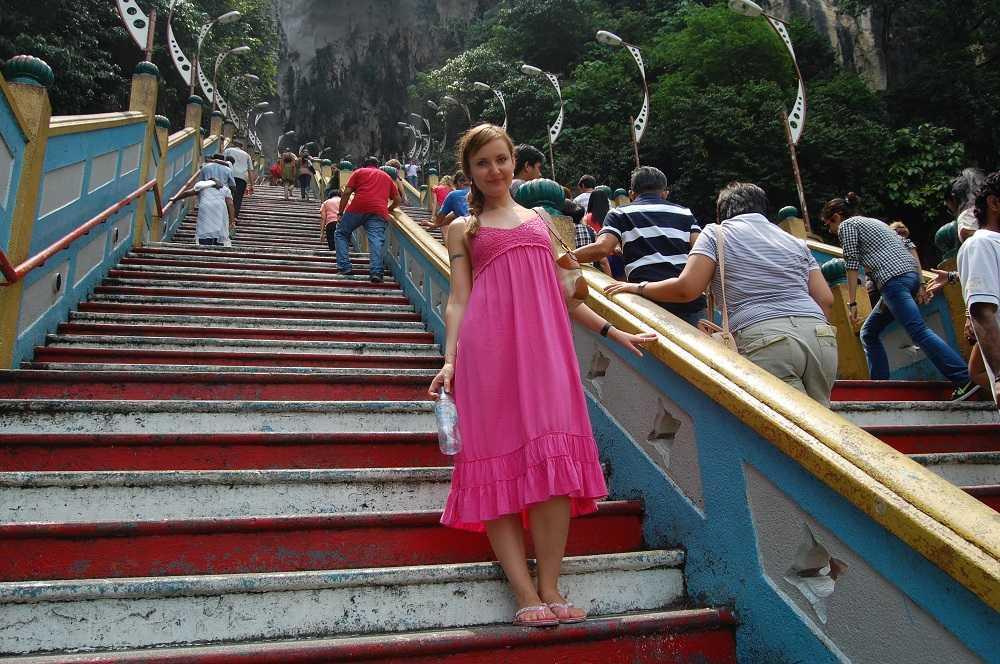
Plus, there are macaque monkeys along the way as you make the ascent to the top. Unfortunately, the monkeys have a bad reputation and can get aggressive if you have food or intrude too far into their “territory”.
However, my friend got along really well with a particular monkey we met along the way.


Introduction to the Batu Caves
There are two large caves located at the top of the long stairway. They are called the “Cathedral Cave” and the “Dark Cave”. The Dark Cave is located below the Cathedral Cave although the entrance is a bit obscure and it is not always open to the public. It is important to come at the proper time because admittance to this cave is regulated. Therefore, it is only open to the public at certain times.
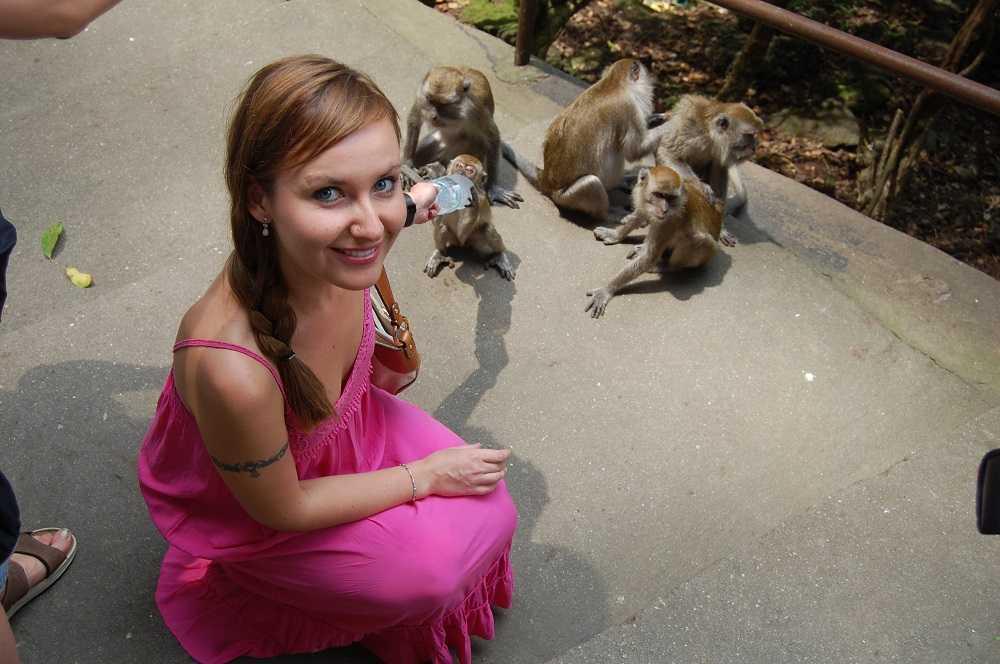
The Dark Cave
This first Batu cave is definitely the more adventurous of the 2 caves. This is the first of the 2 large Batu caves which you will encounter while ascending the stairs. Visitors will find the entrance near the top along a pathway on the left hand side. Additionally, the Dark Cave has a total network of 2 kilometers and it is of course very “dark” inside. Therefore, visitors are required to pay a small fee and join a guided tour.
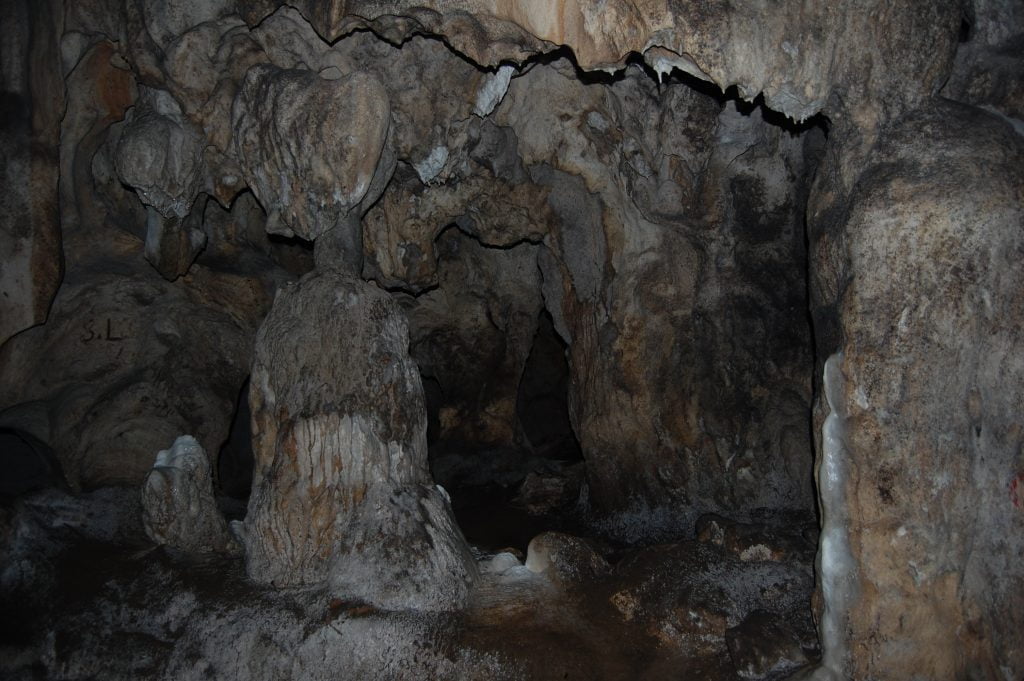
The flora and fauna inside the cave is very interesting. As previously mentioned the caves have a long history of human habitation so there are archeological relics. Additionally, there are bats, unique spiders and insects inside the cave which the guide explains in detail.
There is a paved walkway along the guided part of the tour which makes navigation much easier.
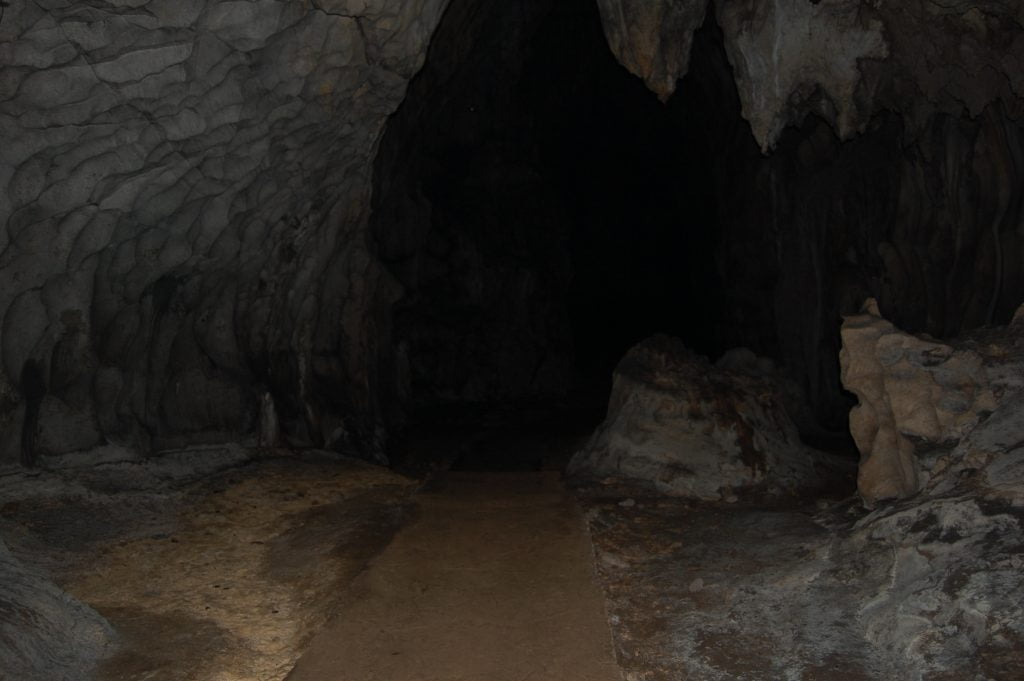
After progressing into the cave we encountered a “light at the end of the tunnel”. Ha Ha, pun intended. But seriously, there is a light at the end of the cave because there is a hole in the ceiling and daylight can come in through the crack.

Cathedral Cave
The entrance to this Batu cave is at the end of a pathway which leads from the top of the stairs. This second cave is not nearly as lengthy as the first cave although it compensates with its huge ceilings. Therefore, it is very large and spacious with the high ceilings like a church cathedral.
Furthermore, there are several small Hindu temples inside and it is well lit. As a result, there is no guide required here and anybody can enter the cave.

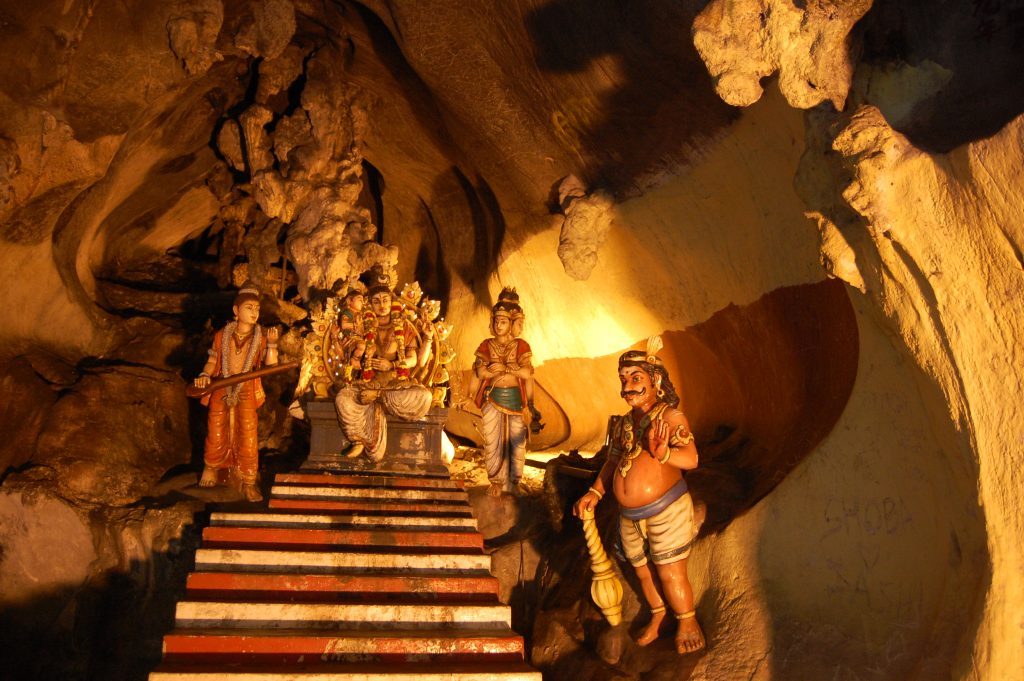
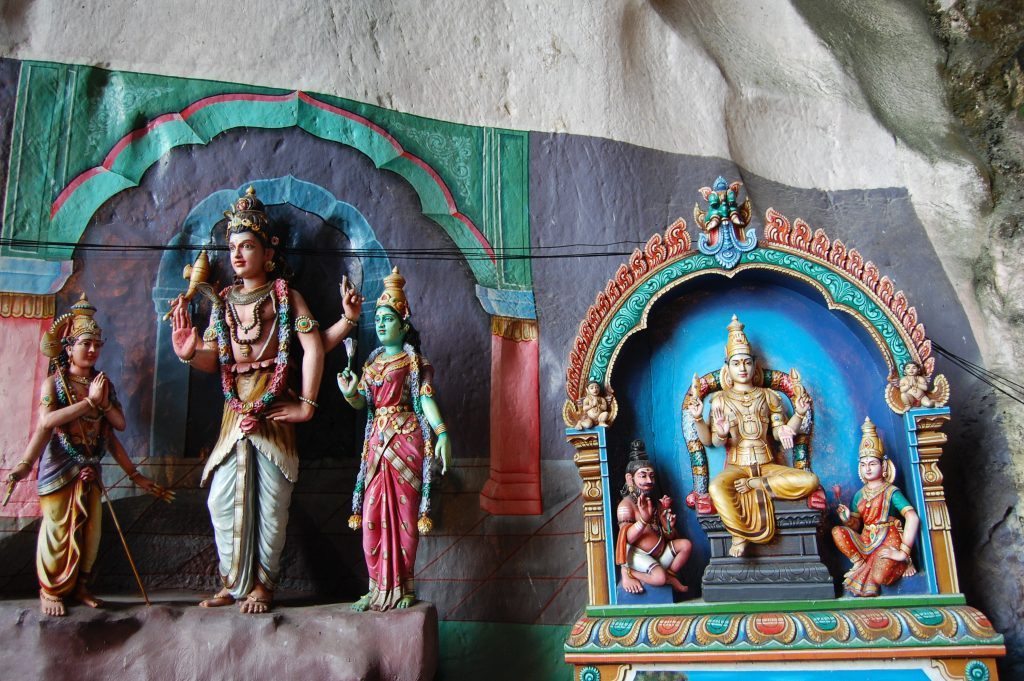
Enjoy the Batu Caves Experience
After visiting the two upper level Batu caves there are two more caves located near the base of the stairs – Art Gallery Cave and Museum Cave. Additionally, there are shops that offer artwork and you can buy coconuts from the local hawkers.
Overall, Batu caves is one of the main attractions in the Kuala Lumpur area and it is well worth the travel time. It is probably most advisable to take a taxi, although bus transport is also available. Hopefully, LRT will be available soon.

